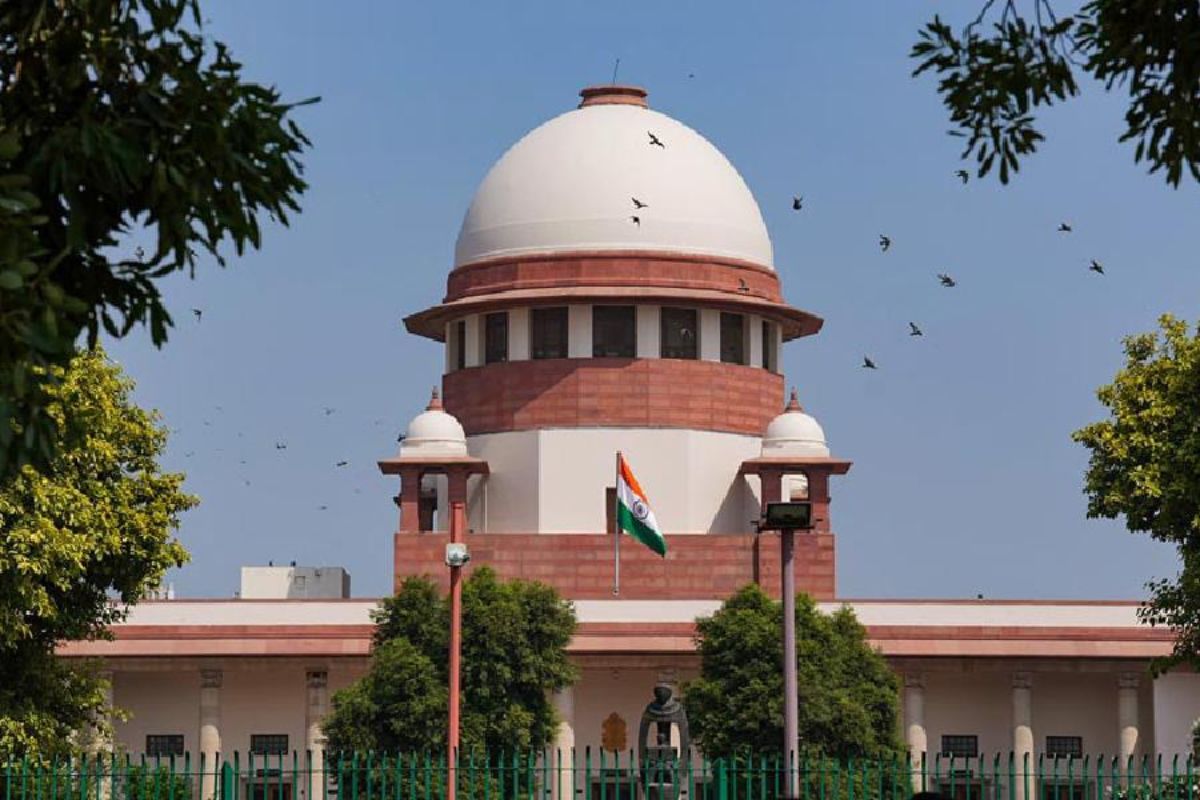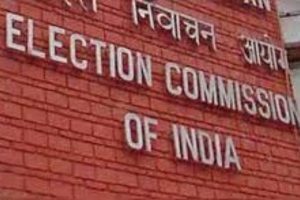The Supreme Court on Tuesday was told that electoral bonds are not election-centric but a means to enrich political parties in power both at the Centre and in states.
A five-judge constitution bench comprising Chief Justice D Y Chandrachud, Justice Sanjiv Khanna, Justice B R Gavai, Justice J B Pardiwala and Justice Manoj Misra was told, “Electoral bonds are a means to enrich a political party. There is no mechanism to ensure that money (coming through electoral bonds) is used for election.”
Advertisement
Senior advocate Prashant Bhushan was arguing for NGO Association for Democratic Reforms and senior advocate Kapil Sibal talked about the opacity of the scheme.
Stating that the electoral bond scheme is wholly arbitrary, Sibal said it should be struck down as it has nothing to do with the election and there is no accountability.
He told the constitution bench, “There is no spending requirement. You can build offices, launch advertisement campaign, show the face 20 times a day (on the visual media)” and pointed to the nexus of corporates controlling media and funding political parties.
Bhushan took the constitution bench through the slew of amendments that were brought in the Representation of People Act, Foreign Contribution Regulation Act, Income Tax Act and eventually the introduction of the electoral bond scheme.
Stating that no one except the government and the State Bank of India can know about the source of the funds coming via electoral bonds, Bhushan said that the anonymity that surrounds the electoral bonds, “defeats the political right of the people to know the sources of the funding of the political parties. Right to Information is a fundamental right to know …”
Pointing to the quid pro quo, Bhushan told the bench that this opaque anonymous instrument promotes corruption in the country. He pointed out that almost all the bonds have gone to political parties ruling at the Centre and in the States, with BJP alone getting 50% of the bonds – Rs. 50000 crores.
He said that overwhelming donations going to ruling parties’ cuts at the root of free and fair elections and it disturbs the level playing field.
Telling the constitution bench that the money coming to the political parties through Shell companies is black money or from foreign sources, Bhushan referred to the Election Commission of India and the Reserve Bank of India expressing their objection to and disapproval of the electoral bond scheme.
He referred to an instance when the government told the parliament that they have not received any objection by the Election Commission on electoral bonds.
Bhushan told the bench that RBI had told the government that the electoral bonds will undermine its position as a central bank on various counts and were contrary to established international practices bypassing the existing banking channels for routing the funds to the political parties.
In the course of his arguments, Sibal said a person is prosecuted in anticipation of a favour and not an actual act of favour but the electoral bond scheme protects the criminal.
“… if a citizen makes a contribution of Rs 20,000 to a political party, he is named, but if a corporate contributes Rs 20 crore, it is kept anonymous,” he told the bench.
He said that “all that is anonymous is not that anonymous as all the recipient political parties know who their big donors are. That is the practical politics.”
Chief Justice Chandrachud observed “A large public limited company when it makes political donations is not for charity.”
Attorney General Venkataramani, speaking for the Central government, had said that the citizens have no right to know the source of the funds of the electoral bonds.
Having stated that the citizens don’t have a right to know the source of the funds of the electoral bonds, the Attorney General opposed the petitioners’ seeking declaration that citizens have a right to know the contributions being made to political party through electoral bonds as a facet of the right to freedom of expression and the confidentiality clothing the Scheme is impermissible.
Venkataramani also found flaws with the petitioners’ plea seeking declaration on two counts, stating that “Firstly, there can be no general right to know anything and everything without being subjected to reasonable restrictions. Secondly, the right to know as necessary for expression can be for specific ends or purposes and not otherwise.”
The constitution bench is hearing a bath of petitions challenging the electoral bond scheme, which allows anonymous funding to political parties, which was brought as a money bill – part of the Finance Acts of 2016 – 2017.
Electoral bond is an instrument in the nature of a promissory note or bearer bond which can be purchased by any individual, company, firm or association of persons provided the person is a citizen of India or body is incorporated or established in India. The bonds are issued specifically for the purpose of funding political parties.











